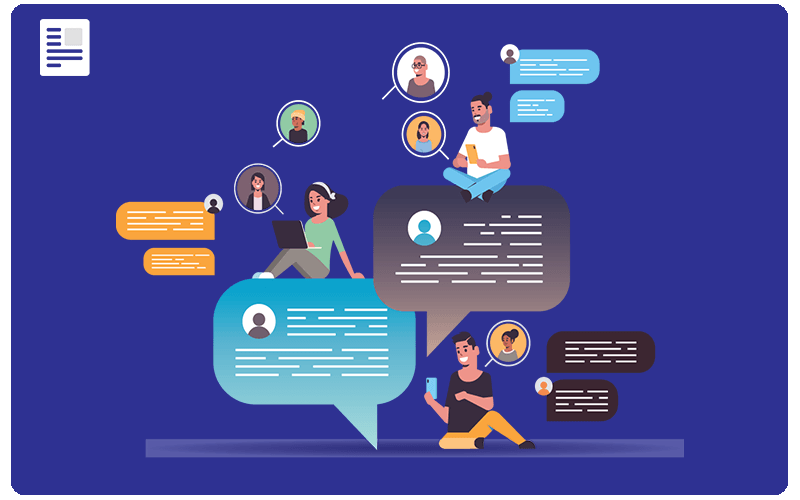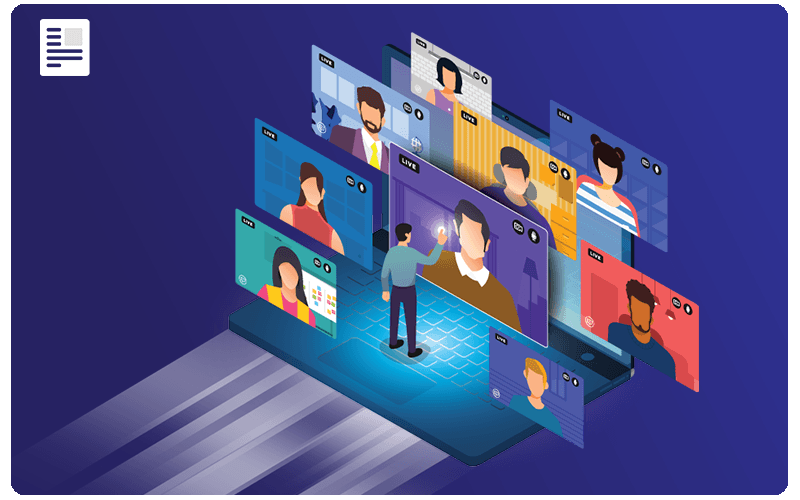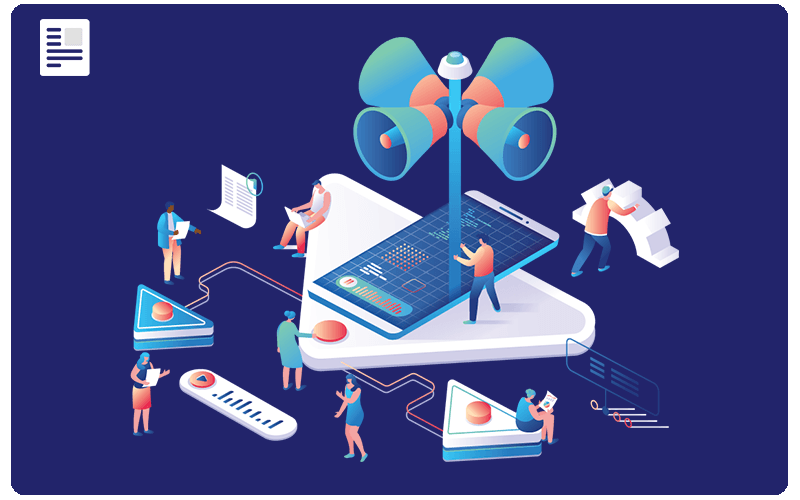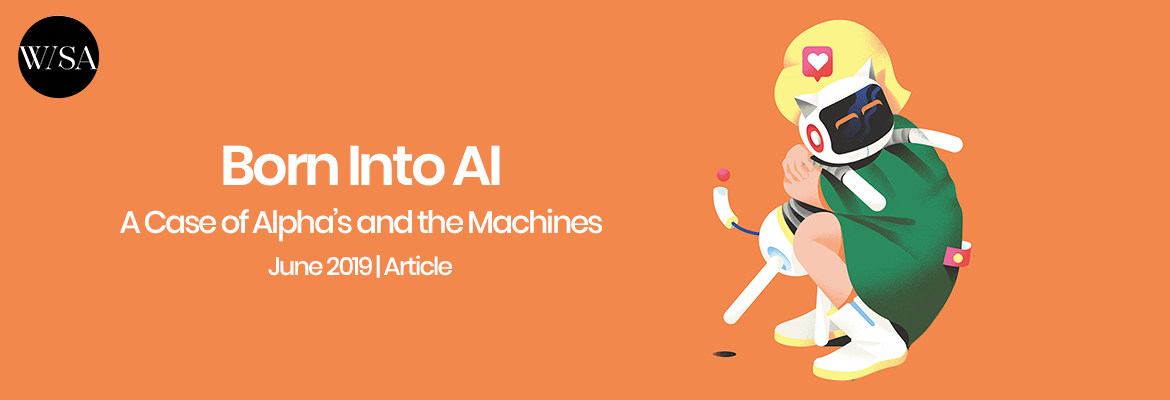
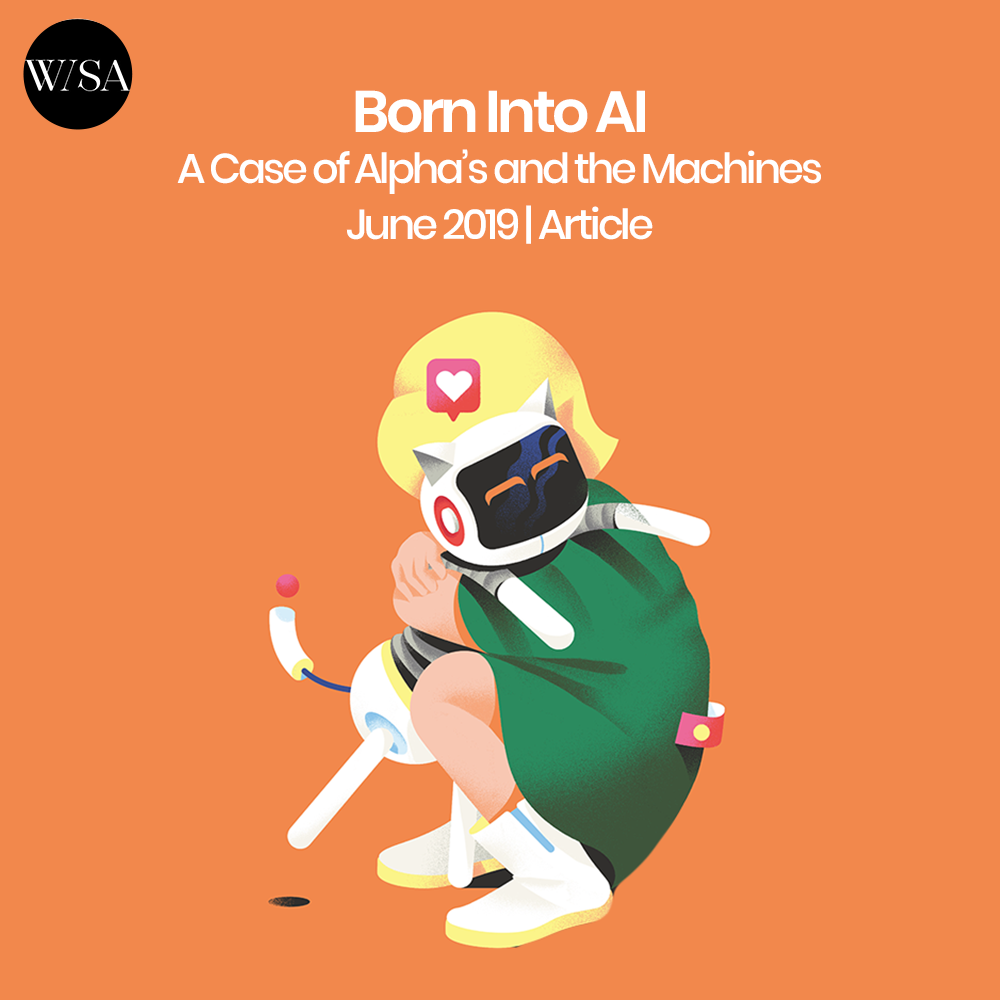
 In November of 2012 a short conversation changed my life forever. It was a crisp San Francisco morning, and we had just had our first session break at the Salesforce Executive Briefing Center for our super cool client Groupon. As I grabbed a bagel and was starting to pour some much-needed coffee, a fellow Salesforce colleague said ‘Javaid you will not believe what my 6-year-old daughter did yesterday’. I looked up and said, ‘What did she do?’. He goes ‘I was on my laptop in my basement couch attempting to get a head start on the week and she came and sat next to me, quietly for about 30 seconds and finally broke her silence and said dad, why isn’t this TV turning on? I said, Sara, you have to turn the TV on for it to turn on. She said no, it should know I am here, it should just turn on by itself’. We both looked at each other, had an amusing laugh and walked back into the next session. But as the day went on, I started thinking about what this little girl had said (and possibly meant) and that was all I could think about for the rest of the day. I couldn’t even sleep that night. As I tossed and turned, I had this uncomfortable urge to comprehend the depth of her ask, her possible belief system (that triggered this entitlement), the innocence hidden in the very powerful demand of hers and above all the monumental expectation she had placed on us adults to create a world that she agrees with, controls and thrives in. Weeks went by with me thinking deeply about how things would evolve for the young humans around us and I couldn’t help but wonder if this little girl had given me a futuristic purpose and crafted a path that carefully tied my collective vision for business, technology and humanity.
In November of 2012 a short conversation changed my life forever. It was a crisp San Francisco morning, and we had just had our first session break at the Salesforce Executive Briefing Center for our super cool client Groupon. As I grabbed a bagel and was starting to pour some much-needed coffee, a fellow Salesforce colleague said ‘Javaid you will not believe what my 6-year-old daughter did yesterday’. I looked up and said, ‘What did she do?’. He goes ‘I was on my laptop in my basement couch attempting to get a head start on the week and she came and sat next to me, quietly for about 30 seconds and finally broke her silence and said dad, why isn’t this TV turning on? I said, Sara, you have to turn the TV on for it to turn on. She said no, it should know I am here, it should just turn on by itself’. We both looked at each other, had an amusing laugh and walked back into the next session. But as the day went on, I started thinking about what this little girl had said (and possibly meant) and that was all I could think about for the rest of the day. I couldn’t even sleep that night. As I tossed and turned, I had this uncomfortable urge to comprehend the depth of her ask, her possible belief system (that triggered this entitlement), the innocence hidden in the very powerful demand of hers and above all the monumental expectation she had placed on us adults to create a world that she agrees with, controls and thrives in. Weeks went by with me thinking deeply about how things would evolve for the young humans around us and I couldn’t help but wonder if this little girl had given me a futuristic purpose and crafted a path that carefully tied my collective vision for business, technology and humanity.
AI as a 7 year old child (and growing)
Now one can argue that in 2019, the concept of a machine detecting human presence may not be as alarming fresh, but in 2012, it sure was. And what it mentally mapped for me (for the first time) was what a collective human/machine evolution would mean for the world and how AI was going to play a central role in it. As I dug more, I realized that the deep learning breakthroughs that drove the AI boom from 2010 onwards, puts AI of today at the age similar to about a 7-8 year old child. That makes a Sara (of today) and (AI of today) at the same age. And as they take this journey of growth, the world will see a new way of interaction, communication, embracing and evolving of each other.
Alpha’s, The real AI generation
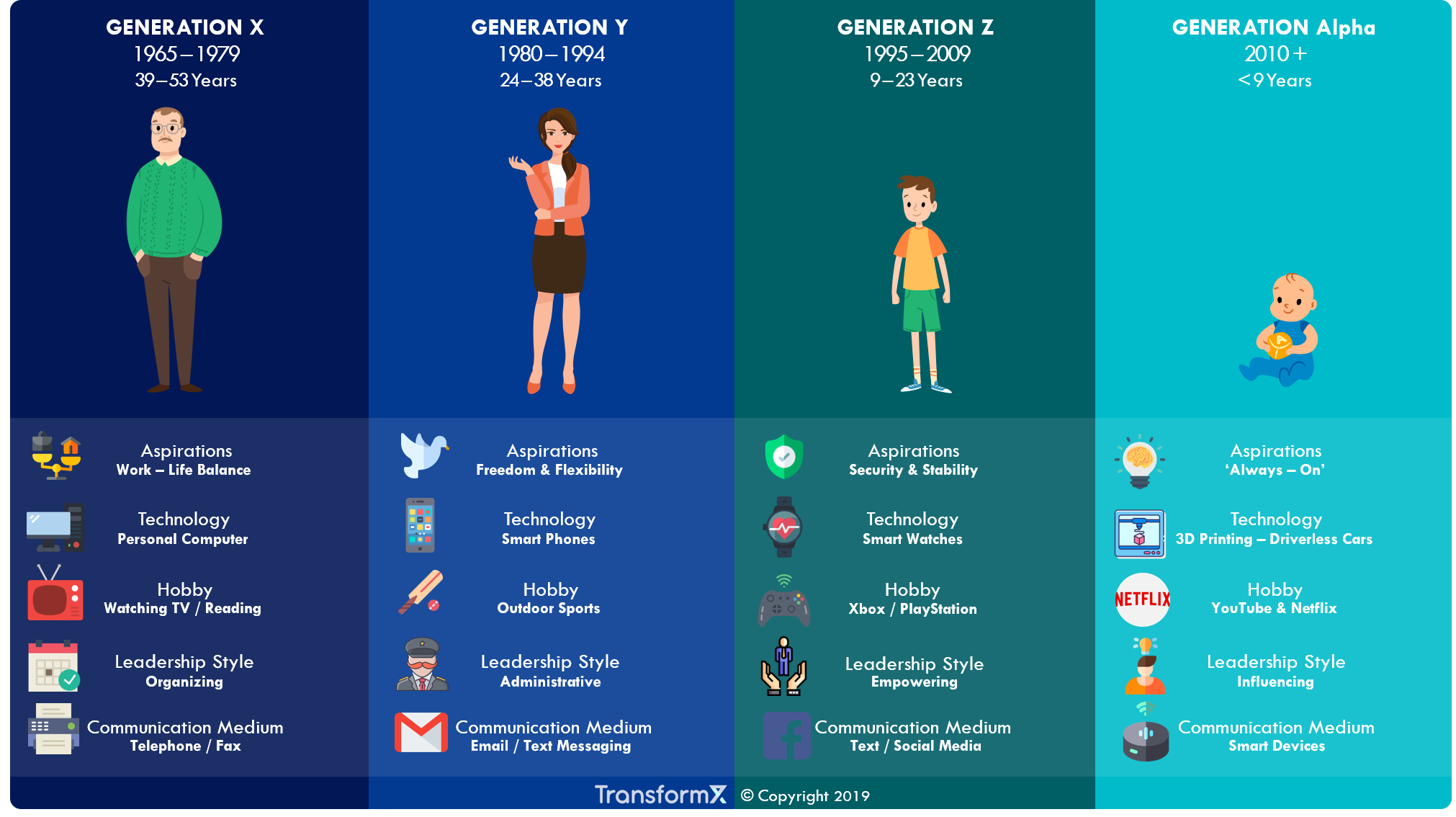
Enter Alpha’s. Alpha’s are considered to be children born between the years 2010 and 2025 (also known as the iGeneration). They are to be the children of the Millennial’s and will be the first group in the world directly introduced to the mobile/social tools like iPad, Instagram, Facetime, smart glasses, apple watch etc. (all of which have some variation of AI embedded in them). In essence, this group are the first ones to be Born into AI and the more they engage with the machines, the more they develop a deep and meaningful relationship with them and with an estimated 2.5 million alphas born globally on a weekly basis, these ‘engagers’ are in for a very interesting time growing up.
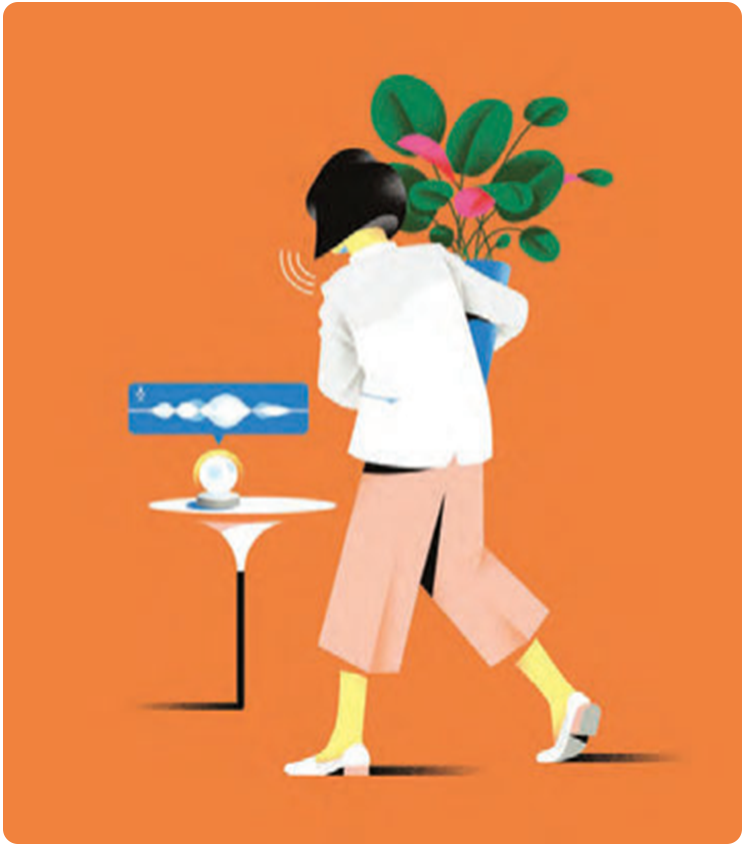
The native engagers
As these engagers grow, so will their interaction with all forms of AI and Robots. They will primarily play with connected toys, will respond to commands and demonstrate Emotional Intelligence in ways the older generations did not get to experience at such a young age. As they grow older and develop verbal skills, voice communication with devices (Alexa, Siri, etc.) will play a key role in shaping it (imagine what their human-human communication would be especially with the non alphas). Alphas will also likely be wearing AI health-trackers from the beginning of their lives, which will certainly lead to data driven decisions around their health, life or death decisions (AI-powered chatbots that are equipped with disease databases, history of the patients, and popular symptoms could easily diagnose sick Generation Alpha patients in no time with perfect accuracy). Imagine early detection of cancer and other fatal diseases and to top it all, their Millennial parents would have no reservations about approving Machine Pediatricians and Robot Surgeons to operate on them as their trusted health providers. Alpha’s will also not have to worry about their aging parents as AI Social Robots will care for them (and Millennial parents would be fine with this too). Imagine, how different the life of an Alpha would be compared to yours.
Bond with the machine
With the abundance of machine interference in the daily lives of Alpha’s, the bond they will develop with each other will be of a different kind (almost that of a sibling). They will learn from each other but not judge each other’s choices, which is interesting because if the machine only learns only certain humanistic traits (let’s say the positive ones), it will respond with positive and favorable choices for the alpha to make. This scenario further grounds their mutual bond as the alphas would learn to rely on them more to make their choices rather than that of a parent (who might add human/rational thinking into the equation). This enables a certain sense of entitlement on the part of the alpha, which will lead to their own brand of happiness and a new form of empathy that is collectively designed by the human and machine experience. But like any relationship, this one will also need work as misjudgments are bound to happen (after all it’s a machine on the other hand). Just recall the number of times Alexa, Siri, or Google Home wasn’t able to get it right and one had to repeatedly ask and fix the commands. This (and other futuristic) lapses of communication have the potential to be frustrating (on both parts), and can teach the machines the not so positive ways about the humans as well. Where that dimension leads, is a whole new story. While a lot remains to be seen in the evolution of the human/machine partnership, one thing is for sure, it’s here to stay and is growing stronger day by day.
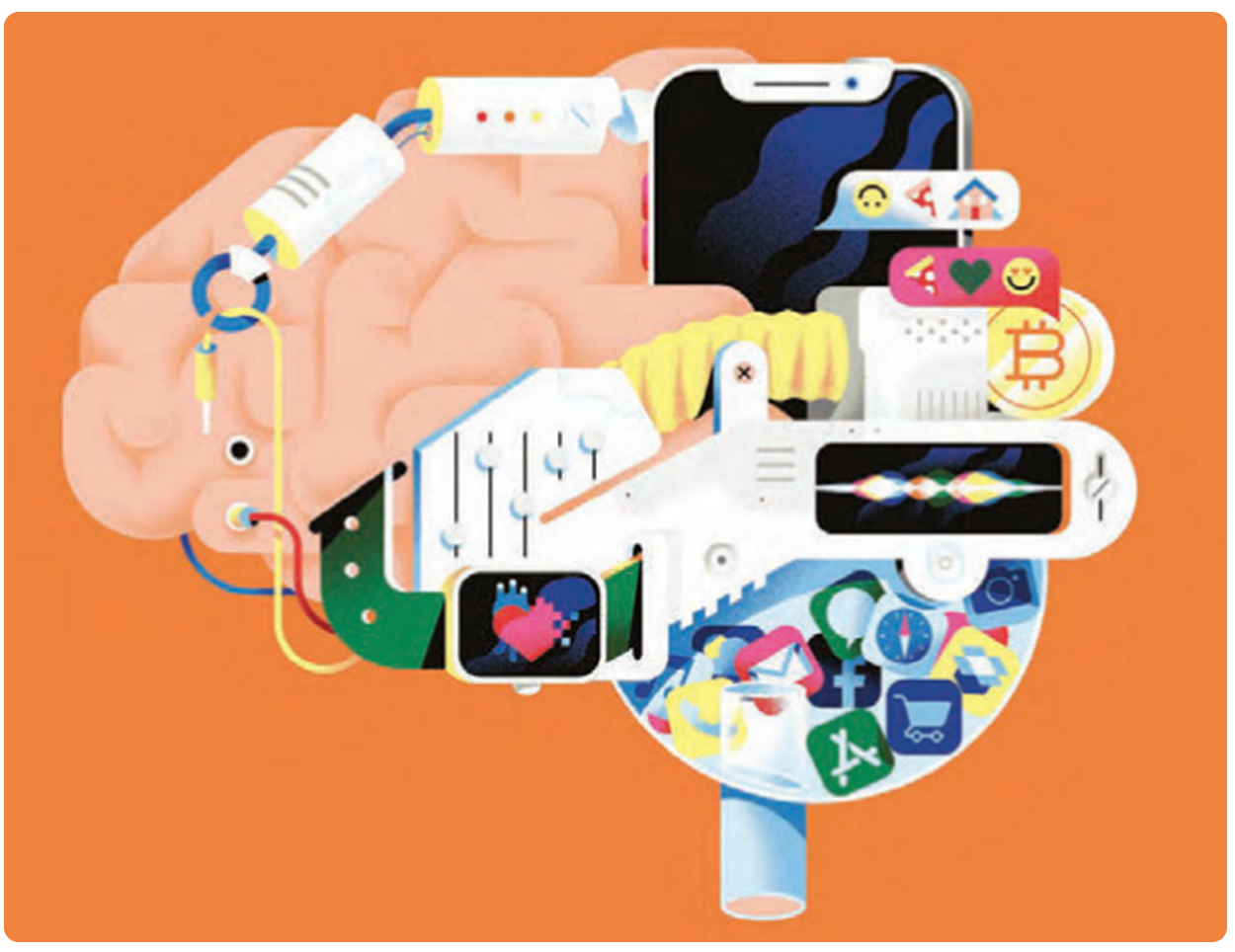
The moral and ethical dilemma of all this
This stuff is really exciting but at the same time, it’s incredibly scary as well. We are teaching machines human behaviors and expecting them to guide us in ways we wish to be guided by an elder/mature/ knowledgeable person that uses moral/ ethical/empathy led ways in a humanistic form. Sadly, a lot of this is fed into the machines by the values/morals/biases of the adults (of today) writing these programs/algorithms. Many of these adults may not have the most positive values and these negative values/biases have the ability to become the foundation of choices that get made for the alphas as they grow up with. Imagine Sara expecting the TV to turn on and in return, the TV doesn’t because it is programmed to not obey a certain gender or ethnicity. So one group gets to have a positive experience with the machine and one not so positive. Imagine the differences in the happiness index of the two groups in their interactions with machines and a potential different growth path both get put on.
So who is on alpha’s side?
It’s a serious question that needs serious answers. The powers to be that oversee the creation of these machines need to instill proper regulation to create a human/machine world that understands the wants of the alpha’s (and other human generations) and creates environments where alphas are not merely subservient to the machines. This is the first generation of humans that would not have had the ability to have an original thought. Every thought of theirs would be influenced by the unknown combination of a human/ machine or a machine/machine. One needs to seriously wonder about who really controls/ mandates/ regulates the Artificial in Artificial intelligence and as products like Synsis (measures the current state of the user’s mind & body and leads them to a path) Netflix (programmatically suggests programs/genres to watch) Siri (routes physical and virtual paths) Google Home (makes her behave in her own home the way Google pleases) and others become mainstream, where does it really end? For little Sara and her counterparts are just being experimented upon. Do they control their lives at all? The absolute clarity will come in time but my guess is, the control has now been lost to the machines. And yes, the WISA readers, the question to ask yourself is, what am I doing to ready myself to fulfill the demands of future customers like Sara, other alpha’s and the machines?
In November of 2012 a short conversation changed my life forever. It was a crisp San Francisco morning, and we had just had our first session break at the Salesforce Executive Briefing Center for our super cool client Groupon. As I grabbed a bagel and was starting to pour some much-needed coffee, a fellow Salesforce colleague said ‘Javaid you will not believe what my 6-year-old daughter did yesterday’. I looked up and said, ‘What did she do?’. He goes ‘I was on my laptop in my basement couch attempting to get a head start on the week and she came and sat next to me, quietly for about 30 seconds and finally broke her silence and said dad, why isn’t this TV turning on? I said, Sara, you have to turn the TV on for it to turn on. She said no, it should know I am here, it should just turn on by itself’. We both looked at each other, had an amusing laugh and walked back into the next session. But as the day went on, I started thinking about what this little girl had said (and possibly meant) and that was all I could think about for the rest of the day. I couldn’t even sleep that night. As I tossed and turned, I had this uncomfortable urge to comprehend the depth of her ask, her possible belief system (that triggered this entitlement), the innocence hidden in the very powerful demand of hers and above all the monumental expectation she had placed on us adults to create a world that she agrees with, controls and thrives in. Weeks went by with me thinking deeply about how things would evolve for the young humans around us and I couldn’t help but wonder if this little girl had given me a futuristic purpose and crafted a path that carefully tied my collective vision for business, technology and humanity.
AI as a 7 year old child (and growing)
Now one can argue that in 2019, the concept of a machine detecting human presence may not be as alarming fresh, but in 2012, it sure was. And what it mentally mapped for me (for the first time) was what a collective human/machine evolution would mean for the world and how AI was going to play a central role in it. As I dug more, I realized that the deep learning breakthroughs that drove the AI boom from 2010 onwards, puts AI of today at the age similar to about a 7-8 year old child. That makes a Sara (of today) and (AI of today) at the same age. And as they take this journey of growth, the world will see a new way of interaction, communication, embracing and evolving of each other.
Alpha’s, The real AI generation

Enter Alpha’s. Alpha’s are considered to be children born between the years 2010 and 2025 (also known as the iGeneration). They are to be the children of the Millennial’s and will be the first group in the world directly introduced to the mobile/social tools like iPad, Instagram, Facetime, smart glasses, apple watch etc. (all of which have some variation of AI embedded in them). In essence, this group are the first ones to be Born into AI and the more they engage with the machines, the more they develop a deep and meaningful relationship with them and with an estimated 2.5 million alphas born globally on a weekly basis, these ‘engagers’ are in for a very interesting time growing up.

The native engagers
As these engagers grow, so will their interaction with all forms of AI and Robots. They will primarily play with connected toys, will respond to commands and demonstrate Emotional Intelligence in ways the older generations did not get to experience at such a young age. As they grow older and develop verbal skills, voice communication with devices (Alexa, Siri, etc.) will play a key role in shaping it (imagine what their human-human communication would be especially with the non alphas). Alphas will also likely be wearing AI health-trackers from the beginning of their lives, which will certainly lead to data driven decisions around their health, life or death decisions (AI-powered chatbots that are equipped with disease databases, history of the patients, and popular symptoms could easily diagnose sick Generation Alpha patients in no time with perfect accuracy). Imagine early detection of cancer and other fatal diseases and to top it all, their Millennial parents would have no reservations about approving Machine Pediatricians and Robot Surgeons to operate on them as their trusted health providers. Alpha’s will also not have to worry about their aging parents as AI Social Robots will care for them (and Millennial parents would be fine with this too). Imagine, how different the life of an Alpha would be compared to yours.
Bond with the machine
With the abundance of machine interference in the daily lives of Alpha’s, the bond they will develop with each other will be of a different kind (almost that of a sibling). They will learn from each other but not judge each other’s choices, which is interesting because if the machine only learns only certain humanistic traits (let’s say the positive ones), it will respond with positive and favorable choices for the alpha to make. This scenario further grounds their mutual bond as the alphas would learn to rely on them more to make their choices rather than that of a parent (who might add human/rational thinking into the equation). This enables a certain sense of entitlement on the part of the alpha, which will lead to their own brand of happiness and a new form of empathy that is collectively designed by the human and machine experience. But like any relationship, this one will also need work as misjudgments are bound to happen (after all it’s a machine on the other hand). Just recall the number of times Alexa, Siri, or Google Home wasn’t able to get it right and one had to repeatedly ask and fix the commands. This (and other futuristic) lapses of communication have the potential to be frustrating (on both parts), and can teach the machines the not so positive ways about the humans as well. Where that dimension leads, is a whole new story. While a lot remains to be seen in the evolution of the human/machine partnership, one thing is for sure, it’s here to stay and is growing stronger day by day.

The moral and ethical dilemma of all this
This stuff is really exciting but at the same time, it’s incredibly scary as well. We are teaching machines human behaviors and expecting them to guide us in ways we wish to be guided by an elder/mature/ knowledgeable person that uses moral/ ethical/empathy led ways in a humanistic form. Sadly, a lot of this is fed into the machines by the values/morals/biases of the adults (of today) writing these programs/algorithms. Many of these adults may not have the most positive values and these negative values/biases have the ability to become the foundation of choices that get made for the alphas as they grow up with. Imagine Sara expecting the TV to turn on and in return, the TV doesn’t because it is programmed to not obey a certain gender or ethnicity. So one group gets to have a positive experience with the machine and one not so positive. Imagine the differences in the happiness index of the two groups in their interactions with machines and a potential different growth path both get put on.
So who is on alpha’s side?
It’s a serious question that needs serious answers. The powers to be that oversee the creation of these machines need to instill proper regulation to create a human/machine world that understands the wants of the alpha’s (and other human generations) and creates environments where alphas are not merely subservient to the machines. This is the first generation of humans that would not have had the ability to have an original thought. Every thought of theirs would be influenced by the unknown combination of a human/ machine or a machine/machine. One needs to seriously wonder about who really controls/ mandates/ regulates the Artificial in Artificial intelligence and as products like Synsis (measures the current state of the user’s mind & body and leads them to a path) Netflix (programmatically suggests programs/genres to watch) Siri (routes physical and virtual paths) Google Home (makes her behave in her own home the way Google pleases) and others become mainstream, where does it really end? For little Sara and her counterparts are just being experimented upon. Do they control their lives at all? The absolute clarity will come in time but my guess is, the control has now been lost to the machines. And yes, the WISA readers, the question to ask yourself is, what am I doing to ready myself to fulfill the demands of future customers like Sara, other alpha’s and the machines?
